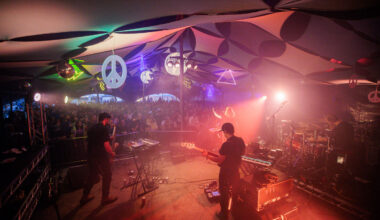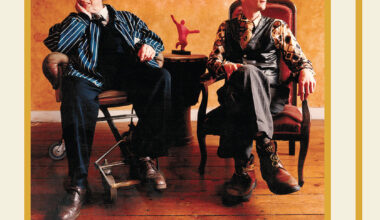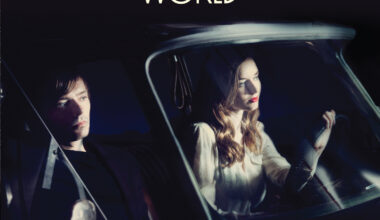Edgy, West Coast-inspired electronica noir

Brooklyn has a lot to answer for. Not content with being the spiritual home of all things hipster, its capacity to churn out clever musical hybrids has been more or less unrivalled over the past decade. To the ranks of the Brooklyn many can be added Robert Toher, whose Public Memory project has potentially delivered one of the most engaging albums we’re likely to hear this year.
To his credit, while he may be based in the Brooklyn, ‘Wuthering Drum’ was developed while he was living in Los Angeles and the sullen, disassociated vibe that prevails across Toher’s debut owes a debt to the environs in which it was conceived. Throughout there’s a feeling of somehow being trapped or uncertain, that LaLaLand isn’t all it’s cracked up to be, undermining any sense of optimism that might exist in some of the more genteel tones and half-melodies that Toher deploys.
The dubby, cloying sonic tapestry brings to mind the collaboration between Zola Jesus and LA Vampires, a project that was designed to evoke the idea in Bret Easton Ellis’s ‘The Informers’ that Ray Ban-clad, dead-eyed vampires are to be found everywhere in the City of Angels. Whereas that collaboration maxed out on a dub-dread prominence, all sluggish, repetitive hip hop beats and the subtly affecting vocals, Toher seems to offer something altogether more harrowing.
We’re used to thinking of minimalism in electronic music as a signal of simplicity, an almost elegantly refined approach to making music. Here, he turns that notion on its head. With pretty much every track you’re left with the impression something has been brutally and forcibly removed. It’s an effect that can frequently leave you feeling queasy, and even when he climbs to a relatively euphoric peak – as on the stand-out ‘Interfaith’ with its choir of twisted vocal layers, or the skittering electro clatter of ‘Zig Zag’ – it still feels wrong, almost as if the motivation for feeling uplifted is perpetually out of reach.
This is electronic music as noir-ish tapestry, lurking forever in the shadows and never fully revealing itself. If you can overcome the uncomfortable feeling that it offers, there’s plenty of intricate detail winding through its relatively pared-back palette of sounds. Gently modulating synth lines ebb and flow beneath beats that move at a snail’s pace, drawing on industrial and sampleadelic hip hop reference points, smoke rings of noise drift up, coil around the whole track and then dissipate and snatches of pretty piano arpeggios appear out of nowhere and shimmer, mirage-like, on the horizon.
This approach culminates in what is the fullest and genuinely most emotionally upbeat cut on the whole record. As the final moment, ‘Lunar’ finds Toher duty-bound to leave you with some sort of happy memory, almost like an apology for all the fragile tension on the rest of the record. And it does that by layering up all the disparate ideas used elsewhere, adding ponderous blues guitar shapes and rattling percussion to deliver what is at once monumentally epic and far too short at the same time.





